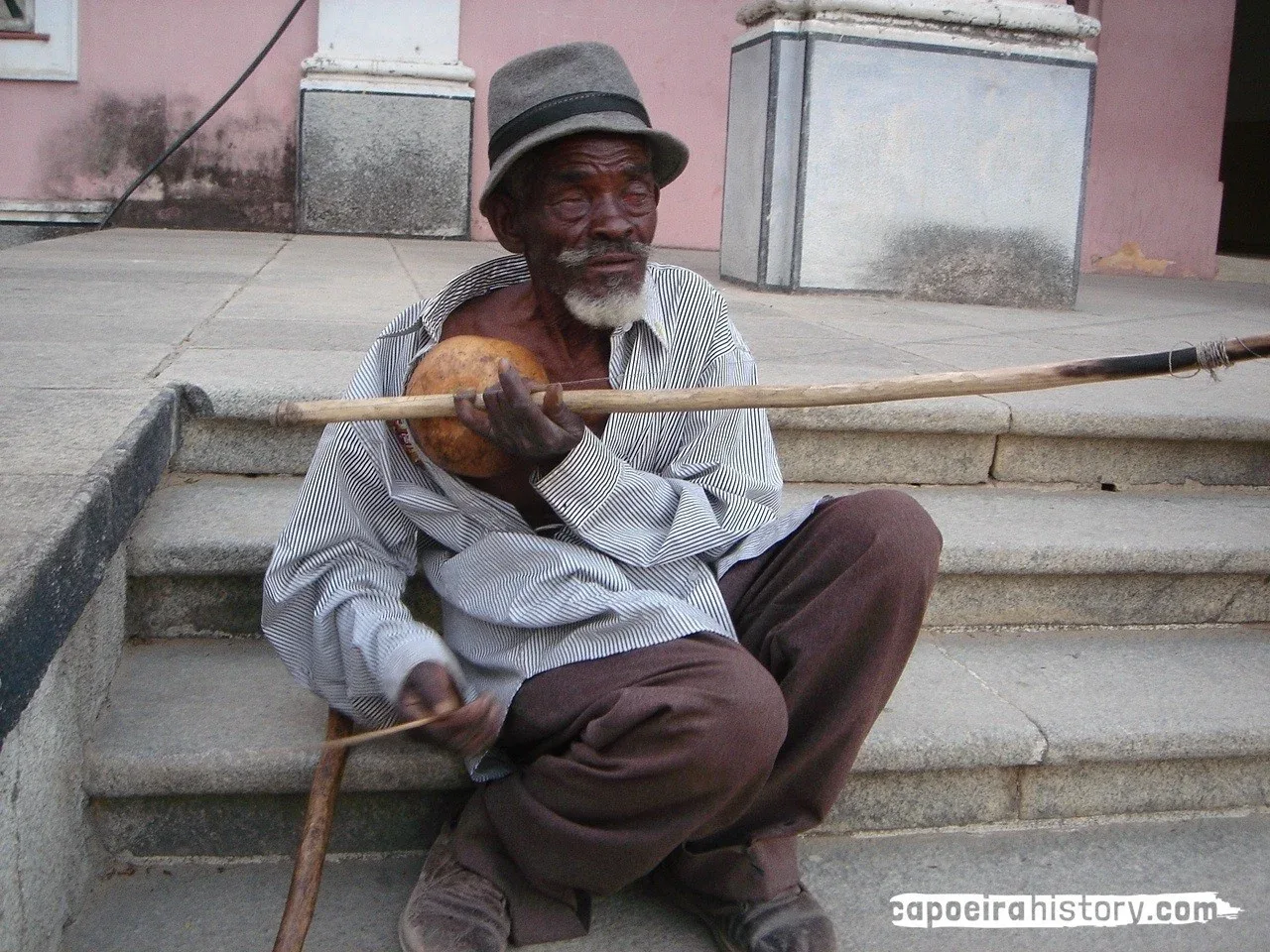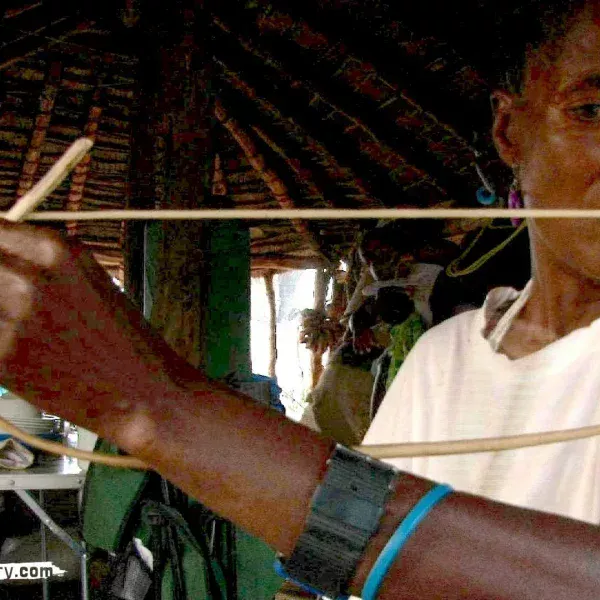Musical bows

Many musicial bows are historically documented in Angola, and a number of them are still played today. Among the Nyaneka-Nhkumbi we identified three types that seem particularly relevant: Mbulumbumba, Onkhondji and Nkweya-Nkweya.
Mbulumbumba
The mbulumbumba is one of the few gourd-resonated musical bows in Southern Africa that is played obliquely rather than vertically. The subtle modulation of the notes, produced by the player’s thumb manipulating the string, allows the mbulumbumba to act like a second voice in accompaniment to the singer’s melody, repeating or giving variation to the main theme of the song.
The mbulumbumba has often been associated with young people or those who have adopted a nomadic lifestyle, earning their living by playing the instrument. It is therefore not considered a very prestigious instrument compared to the mouthbow onkhondji played by cattle herders. Furthermore, the possibility of embodying the spirit of an ancestor who played the instrument earned it the disapproval of missionaries suspicious of such “pagan” traditions.

Onkhondji
This Mouthbow is commonly used by individuals for their own amusement. A deep bass sound is produced in the mouth cavity, with overtones generated on the vibrating string of the braced bow. In rural areas, men play the mouthbow onkhondji in order to stay awake when herding their cattle in the pastures.
The repertoire of the onkhondji can vary; players may refer to particular situations with their cattle by imitating the gait of their animals on the instrument. The melodies of the herders’ own traditional songs can also be rendered through the overtones on the string of the bow. The instrument can moreover act as an accompaniment when telling anecdotes or when in dialogue with other herders.
Christine Dettman wrote The Calf of the Wild: Sound, Embodiment, and Oral Poetry among Cattle Herders in Southwestern Angola, a more detailed article about onkhondji, which you can download here!


Ekweya-Kweya
The ethnomusicologist Christine Dettman has provided us with the following description:
The unbraced mouth-resonated musical bow with a serrated bow stave and a single string has various names in Southern Africa. Among the Muhumbi in Southwestern Angola, it is called “ekweya-kweya”, probably an onomatopoeic name because from afar, one would only hear the rasping noise produced by the stick rubbing over the bow’s edge. It causes the string, made of plant fibre (e.g. Hyphaena ventricosa) to vibrate. Only close-by, intensified overtones are notable, created by the performer’s mouth cavity held next to the string. By further reducing the wire with another little stick, additional overtones are formed, effectively building a hexatonic pitch reservoir for melodies. Hence, these overtones shape songs which knowledgeable by-standers would recognize. Among Muhumbi, the instrument is being used by women to console themselves in their lonely or sad hours.
The instrument comes with the name “elumba” among neighboring Momwhila, “ekolowa” among Hanya (Hauenstein 1967:222-3), and various others. There are audio recordings available online with the project Tsikaya (e.g. Tsikaya.org > Browse “Benguela/Ndombe Grande” > Bei Primeiro [track 1, 2] Avelino Chico [track 2], Tsikaya.org > Browse “Moxico/Ndele”).”
References:
Hauenstein, Alfred (1967). Les Hanya: description d’un groupe ethnique bantou de l’Angola (The Hanya: Description of an ethnic Bantu group from Angola). Wiesbaden: Steiner.
Tsikaya.org

